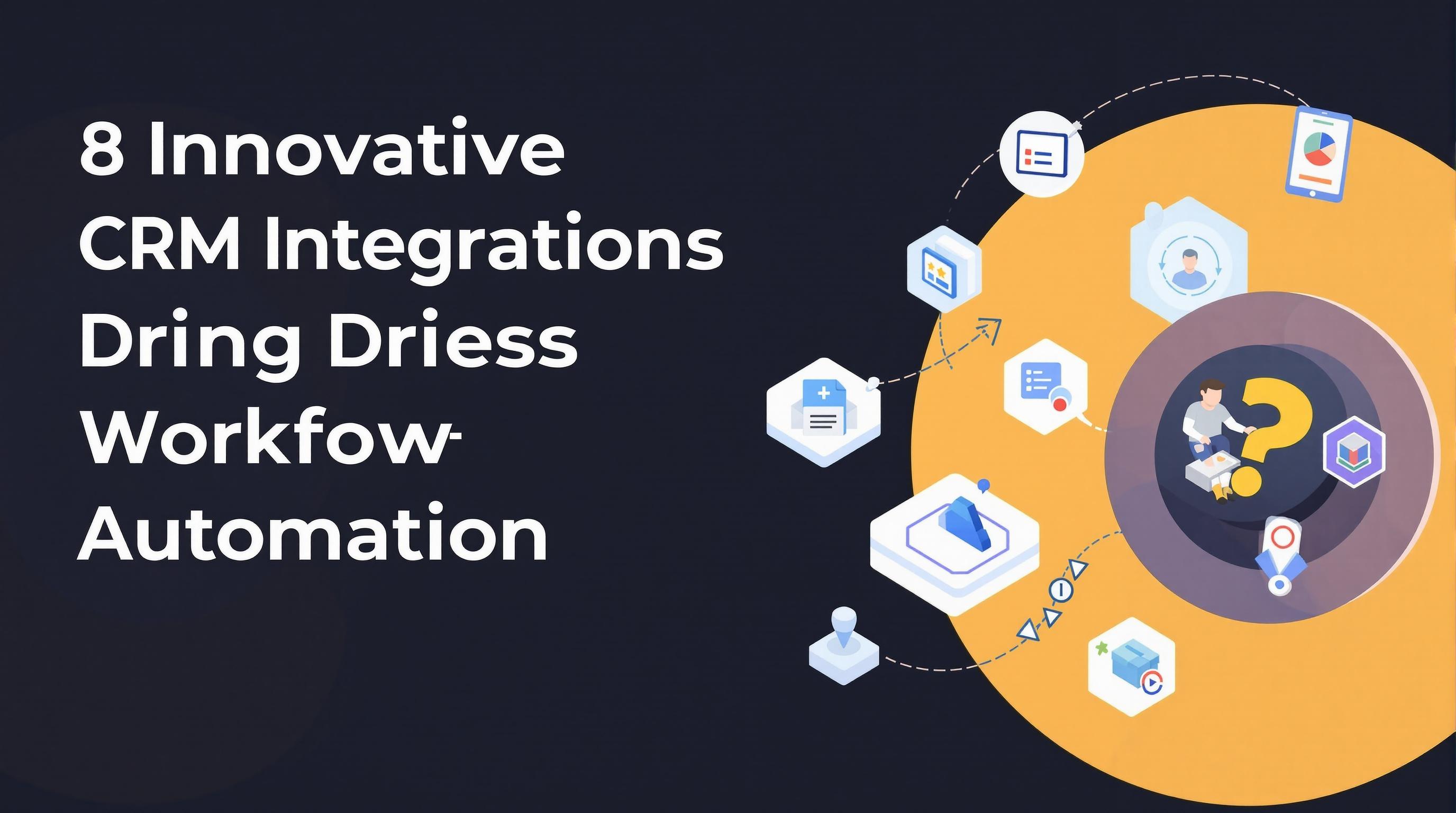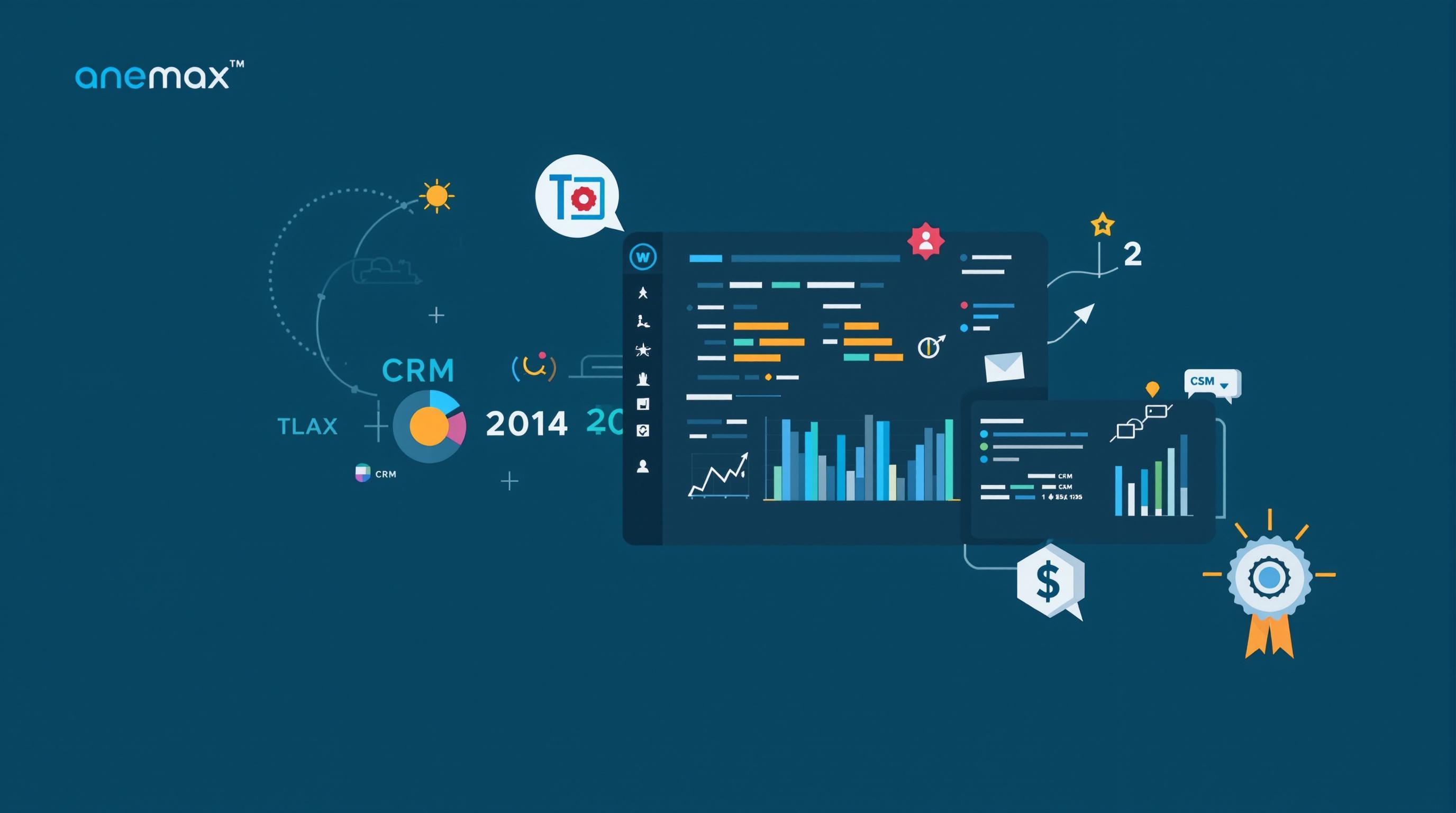Related Articles
- Exploring the Role of Emotional AI in Resolving Conflicts Within Customer Support Interactions
- Top 6 Breakthrough Pricing Engines Launched Since 2019 That Redefine Value Perception and Buyer Behavior
- How HR Software Is Quietly Shaping Workplace Culture Beyond Metrics and Performance Tracking
- The Surprising Influence of Workplace Architecture on Team Dynamics and Project Success in Business Ventures
- 7 Lesser-Known Marketing Automation Tools Released Since 2019 That Outsmart the Giants
- Top 6 CRM Platforms Released Since 2019 That Are Redefining Automation and User Experience in 2024
8 Innovative CRM Integrations Driving Seamless Workflow Automation Beyond Traditional Customer Management
8 Innovative CRM Integrations Driving Seamless Workflow Automation Beyond Traditional Customer Management
8 Innovative CRM Integrations Driving Seamless Workflow Automation Beyond Traditional Customer Management
1. AI-Powered Analytics Integration
In the evolving landscape of customer relationship management, AI-powered analytics integrations have transformed how businesses interpret customer data. By embedding artificial intelligence tools into CRMs, companies gain predictive insights and personalized recommendations that go beyond simple record-keeping.
This integration automates data analysis, identifying patterns in customer behavior that enable teams to prioritize leads and tailor marketing efforts efficiently. It reduces the cognitive load on employees, allowing focus on strategic decision-making rather than manual data sifting.
Sources such as Gartner’s “Market Guide for AI in CRM” highlight that AI analytics integrations can improve conversion rates by up to 25%, demonstrating their growing importance in workflow automation and customer engagement strategies.
2. Social Media Listening and Engagement Tools
Social media integration with CRM platforms offers companies real-time visibility into customer sentiment and trends. This enables seamless engagement and helps businesses react promptly to feedback or emerging issues.
Integrating social listening tools automates the capture of social mentions directly into CRM records, linking public conversations to customer profiles. This streamlines communication processes, enriching customer insights without manual data entry.
According to HubSpot’s research, businesses that integrate social media with CRM see a 15% improvement in customer response times, reinforcing the value of this integration for proactive service and automated workflow.
3. Automated Marketing Campaign Platforms
Modern CRMs now connect with automated marketing platforms to orchestrate multi-channel campaigns driven by customer data. This integration centralizes customer information and campaign analytics, ensuring consistency across emails, ads, and social media.
Workflow automation occurs as customer actions—such as clicks or form submissions—trigger personalized follow-ups without human intervention, enhancing lead nurturing and conversion efficiency. Campaign results feed back into the CRM to refine targeting further.
Marketo’s report highlights that automated marketing integrations improve lead qualification speeds by 30%, showcasing their effectiveness in bridging marketing and sales workflows through CRM.
4. Customer Support Ticketing Systems
Integrating customer support ticketing systems within CRM platforms streamlines issue tracking and resolution workflows. Support teams can view the entire customer history while managing tickets, enabling faster and more personalized service.
Automation arises by routing tickets to the appropriate agents based on the customer profile or issue type, minimizing manual handoffs and reducing response times. This holistic view fosters collaboration between support and sales departments.
Zendesk data indicates that companies using ticketing-CRM integrations reduce case resolution times by around 20%, underscoring the importance of this integration in customer satisfaction and retention.
5. E-Commerce Platform Linkages
Linking e-commerce platforms with CRMs enables businesses to track purchasing behavior and inventory status directly within customer profiles. This integration brings product and order data into the CRM ecosystem for informed upselling and personalized recommendations.
The automation aspect manifests in triggered workflows such as follow-up emails after purchase, abandoned cart reminders, and replenishment alerts without requiring manual intervention. This synchronization boosts operational efficiency.
According to Shopify analytics, brands leveraging e-commerce-CRM integration see a 20–40% increase in repeat sales, proving the commercial advantages of seamless data exchange.
6. Document Management Systems
Integrating document management systems with CRMs centralizes contract, proposal, and communication files within the customer record. This simplification improves accessibility and reduces the friction of manual document handling.
Workflow automation includes automatic document generation based on CRM data, enabling rapid contract creation or quotation without duplicative effort by the sales team. It also supports audit trails and compliance tracking.
Research from Forrester finds document management integrations enhance sales cycle speed by 18%, demonstrating how digital document workflows streamline customer interactions.
7. Calendar and Scheduling Tools
Calendar integration with CRM platforms automates meeting scheduling, reminders, and follow-ups tied to customer interactions. This reduces the administrative burden and ensures timely engagement with prospects and clients.
Workflows such as automated appointment confirmations or post-meeting surveys improve experience consistency and allow sales and service teams to focus on relationship-building rather than logistics.
A study by Clearbit shows that companies using calendar-CRM integration improve meeting attendance rates by over 15%, highlighting the effectiveness of synchronized scheduling workflows.
8. Voice and Communication Platforms
Integrating voice and communication software with CRM systems links phone calls, voicemails, and messages directly to customer records. This fusion helps maintain rich interaction histories that inform personalized conversations.
Automation features include call logging, voicemail transcriptions, and automated follow-up reminders, which streamline outreach activities and ensure no customer touchpoint is missed.
Twilio research indicates that voice-CRM integration can increase call productivity by 25%, signifying the impactful role of communication tools in CRM-driven workflow automation.
Conclusion
The advent of these innovative CRM integrations marks a significant shift beyond traditional customer management — transforming CRMs into dynamic hubs of workflow automation. By embedding AI, social media tools, marketing automation, support ticketing, e-commerce data, document systems, scheduling, and communication platforms, businesses craft seamless processes that enhance both efficiency and customer experience.
Enterprises adopting these integrations find not only streamlined workflows but also deeper, more actionable customer insights that fuel sustainable growth. As technology progresses, the fusion of these diverse tools within CRM environments will continue to redefine how organizations connect with their customers, colleagues, and markets.
Harnessing these capabilities with mindful strategy enables organizations to move beyond transactional relationships to meaningful, evolving partnerships with their customers.




